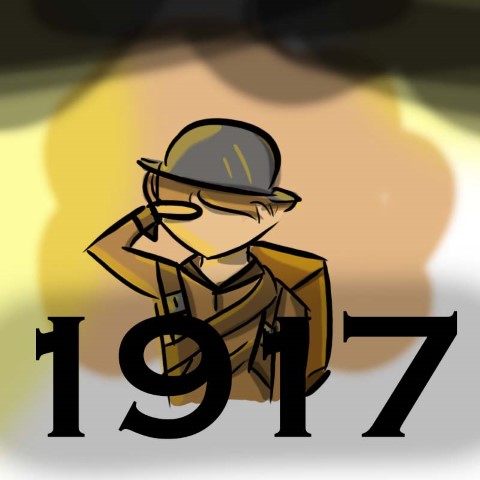
‘1917’ Review
By Jerrison Oracion, Senior Columnist
5/5
So far, the world has gone through two world wars. Hopefully, we do not go through another one, especially with recent events in Iran. In a world war, no one wins. This is due to the fact that such a conquest would involve everyone being worried about their safety. On top of that, those risking their lives in the war that survive would be severely affected mentally and physically in the long term. When I saw the preview for Sam Mendes’ next film, 1917, I wondered if it was going to do very well.
After it was shown in limited release last month, many were saying that it earns the title of the best film of 2019, and that it could get Best Picture in the Academy Awards this year. These statements could be very true considering that the film got nominated for 10 Oscars this year. After seeing the film when it was released in theatres everywhere, I can confirm that it lives up to the hype, and makes the race for Best Picture much more interesting. This movie is another great example of why a film should be seen on the big screen first. The scene is set quickly: it has been six years since World War I began in 1911, and the German army set a trap in the Hindenburg Line for British soldiers unaware of it.
Lance Corporals William Schofield (George MacKay) and Tom Blake (Dean-Charles Chapman) receive a mission from General Erinmore (Colin Firth) to deliver a message to Colonel MacKenzie (Benedict Cumberbatch) to call off the impending attack which could possibly lead to 1600 casualties. Among the count would be Blake’s brother, Lieutenant Joseph Blake (Richard Madden). What would follow is an almost two-hour continuous shot of Will and Tom trying to accomplish their mission of getting to the French village of Écoust. The message delivery forces them to encounter many obstacles in the trenches of the Western Front.
Mendes and Krysty Wilson-Cairns’ screenplay is based on stories from Mendes’ grandfather, Alfred Mendes, who also served in World War I. Though the tone is serious, the film is punctured by the f word at certain times. Interestingly, I counted at least three continuous scenes in the movie. If the entire film was done in one take, it would have taken at least 10 hours. In line with this idea, it makes sense that they end one of the scenes at nighttime. The film being filmed at sunset and sunrise makes the continuous shots work.
The scenes are sectioned when Will and Tom go through a door or a new environment. Mendes is also a stage director, and in an interview with IMDb, Chapman says that they rehearsed for six months before they actually started shooting. It is clear that they had to make sure that everything was perfect and moving along in real time. The direction from Mendes made the film resemble watching a play; he uses a lot of yellow just like in the James Bond film Skyfall—especially in the nighttime scene.
Thomas Newman’s score rouses the audience into excitement and properly depicts the heavy impact of a war. There were a few scenes that involve trust—which is a major issue today which affect everyone’s decisions and actions, so the film can speak to many in that way. There were a lot of surprise hits last year… But 1917 is the actual surprise hit of 2019 and almost my favourite film of 2019 (other than The Avengers: Endgame) because it is an almost seamless journey of a mission that shows that a war cannot solve the problem.

